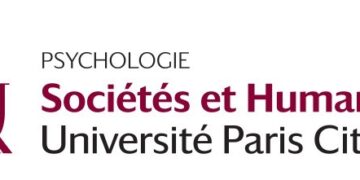Intervention in neuropsychology
-
Are you familiar with neuropsychological interventions?
Based on your cognitive profile or the everyday challenges you may face, certain interventions—known as cognitive remediation therapies—can be very helpful. You can find more details about the steps involved [here].
Like psychotherapy, cognitive interventions include a variety of approaches and strategies. While all these interventions focus on improving cognitive functioning, different programs use distinct methods and pursue different goals. A recent review of the literature proposes three main types of cognitive intervention: cognitive stimulation, cognitive training, and cognitive rehabilitation (Linda Clare & Woods, 2004). Here’s a brief overview of each:
-
Cognitive Stimulation involves general mental and social activation through activities such as conversations, games, or quizzes. The goal is to enhance overall cognitive and social functioning. This approach does not necessarily aim to improve your awareness of your own thinking processes (known as metacognition) and can often be used independently without a therapist (Aguirre, Woods, Spector, & Orrell, 2013; Clare & Woods, 2004).
-
Cognitive Training focuses on maintaining or improving specific cognitive skills like attention or memory through guided practice and repetition of standardized tasks (Kasper et al., 2015).
-
Cognitive Rehabilitation aims to help you maintain or improve everyday functioning by teaching compensatory strategies. These can include adapting your environment or using external aids such as automatic reminders. This approach is usually personalized, though it can also be offered in group settings—as is done, for example, at the Douglas Institute (Huckans et al., 2013; Storzbach et al., 2016; Twamley et al., 2014, 2015).
If you would like to explore which type of cognitive intervention might be right for you, consulting with a neuropsychologist can provide guidance tailored to your unique needs.
-
Intervention for adults with ADHD
Cognitive-Behavioral Intervention for Adults Facing Challenges with Organization, Prioritization, and Procrastination
Many adults who struggle with organizational skills, time management, and procrastination also experience mood disturbances related to these difficulties. While medication can improve focus, it typically has little to no effect on organizational abilities.
Research consistently supports that the most effective treatment for adult ADHD combines medication with targeted behavioral interventions (Biderman et al., 1996; Wender et al., 1998; Wilens et al., 1998).
Dr. Geneviève Gagnon provides personalized, evidence-based cognitive-behavioral interventions designed to empower adults to regain control over their daily lives. Drawing on the latest research in executive functioning and executive coaching, these interventions help patients develop practical strategies to become more proactive, improve self-awareness, and enhance their overall functioning.
This comprehensive program is offered individually over 10 to 13 sessions, typically scheduled every two weeks. To schedule a consultation, please book here.
For complaints including:
Feeling overwhelmed at work
Running late on projects
Memory / Attention mistakes
Difficulty Multi-tasking/Prioritizing
Procrastination
Intervention for adults with Subjective Memory complaints
The Synapse Program: Enhancing Cognitive Functioning
The Synapse program is designed to help individuals experiencing subjective cognitive difficulties improve key functions such as memory, attention, and organization in everyday life. Because our approach is integrative and tailored to your unique needs, the program can be delivered either in full or in selected components, depending on what suits you best.
Synapse is adapted from the Compensatory Cognitive Training (CCT) program originally developed in the United States by Dr. Elizabeth W. Twamley (University of California, San Diego) and Marilyn Huckans (Oregon Health & Science University). This evidence-based program was initially validated in the U.S. (Storzbach et al., 2016). We are proud to offer this program in Quebec, having translated and culturally adapted it for the local population (2015-2016). This work was led by Dr. Marjolaine Masson, a neuropsychologist and former postdoctoral trainee, in collaboration with her then research supervisor, Dr. Geneviève Gagnon.
The Synapse program is currently offered at the Douglas Mental Health University Institute, where it is delivered by Nancy Grenier, Occupational Therapist, and Lisa O'Reilly, Recreational Therapist. The program was initially developed and overseen as a research project by Dr. Geneviève Gagnon during her time as a researcher. It is now competently led and provided by these two experienced clinicians. Additionally, the program is offered in Salaberry-de-Valleyfield, Montérégie-Ouest (CISSS Montérégie-Ouest) by local professionals trained at the Douglas Institute under the supervision of Dr. Gagnon and Dr. Masson.
For those seeking individualized support, Dr. Geneviève Gagnon offers a similar one-on-one program outside of these institutions. Please book here.
Program duration: up to 10-13 sessions, scheduled every 1 to 2 weeks.
For complaints including:
Subjective memory change
Difficulty Memorizing new information
Questions about cognitive aging
Difficulty adjusting to cognitive changes
Why Early Cognitive Assessment Matters for Healthy Aging
As we age, changes in our thinking abilities can be subtle. You may notice that names take a little longer to recall,…
Read PostRetour sur ma conférence à l’Université de Paris – 18 novembre 2025.
Mettre en lumière le programme Synapse : des stratégies concrètes pour l’attention, l’organisation et la mémoire…
Read PostSupporting Cognitive Health Through Targeted Intervention
Our brains shape every aspect of our daily lives—how we think, remember, plan, focus, and adapt. When cognitive abilities…
Read PostNew Insights into Dementia Prevention: The Expanding List of Modifiable Risk Factors
Dementia is one of the most pressing public health challenges of our time, affecting millions of individuals worldwide.…
Read Post








